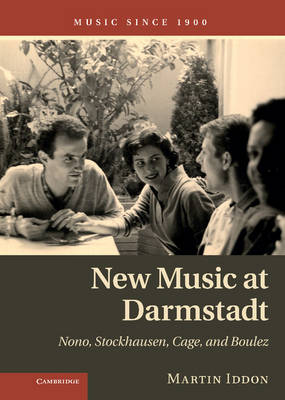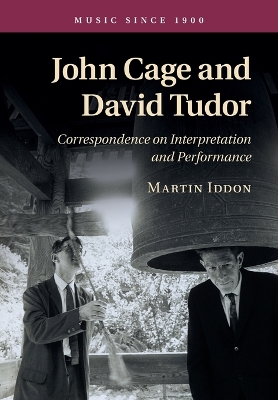Music since 1900
3 total works
New Music at Darmstadt explores the rise and fall of the so-called 'Darmstadt School', through a wealth of primary sources and analytical commentary. Martin Iddon's book examines the creation of the Darmstadt New Music Courses and the slow development and subsequent collapse of the idea of the Darmstadt School, showing how participants in the West German new music scene, including Herbert Eimert and a range of journalistic commentators, created an image of a coherent entity, despite the very diverse range of compositional practices on display at the courses. The book also explores the collapse of the seeming collegiality of the Darmstadt composers, which crystallised around the arrival there in 1958 of the most famous, and notorious, of all post-war composers, John Cage, an event Carl Dahlhaus opined 'swept across the European avant-garde like a natural disaster'.
John Cage is best known for his indeterminate music, which leaves a significant level of creative decision-making in the hands of the performer. But how much licence did Cage allow? Martin Iddon's book is the first volume to collect the complete extant correspondence between the composer and pianist David Tudor, one of Cage's most provocative and significant musical collaborators. The book presents their partnership from working together in New York in the early 1950s, through periods on tour in Europe, until the late stages of their work from the 1960s onwards, carried out almost exclusively within the frame of the Merce Cunningham Dance Company. Tackling the question of how much creative flexibility Tudor was granted, Iddon includes detailed examples of the ways in which Tudor realised Cage's work, especially focusing on Music of Changes to Variations II, to show how composer and pianist influenced one another's methods and styles.
The correspondence between composer John Cage and Peter Yates represents the third and final part of Cage's most significant exchanges of letters, following those with Pierre Boulez and with David Tudor. Martin Iddon's book is the first volume to collect the complete extant correspondence with his critical friend, thus completing the 'trilogy' of Cage correspondence published by Cambridge. By bringing together more than 100 letters, beginning in 1940 and continuing until 1971, Iddon reveals the dialogue within which many of Cage's ideas were first forged and informed, with particular focus on his developing attitudes to music criticism and aesthetics. The correspondence with Yates represents precisely, in alignment with Cage's fastidious neatness, the part of his letter writing in which he engages most directly with the last part of his famous tricolon, 'composing's one thing, performing's another, listening's a third'.


